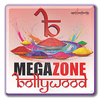Film & Musical radio – Listen to 304 Film & Musical radio stations online
Soundtracks, Symphonies & Star Wars - A guide to film music
Dirty Dancing, Lord of the Rings, Star Wars, The Lion King, Pirates of the Caribbean.. everyone knows these films. Even those who haven’t seen these films know their storylines, the characters or at least the names. More of less everyone knows the soundtrack from at least one of them. For those who don’t know Hans Zimmer or Howard Shore, and aren’t familiar with the London Symphony Orchestra can definitely still hum along to the Star Wars intro and can whistle along to the theme tune of Pirates of the Caribbean. Last but not least, who doesn’t like to chant along to Elton John’s “Can you feel the love tonight”?
Film music is setting the mood
Film music, also known as soundtracks, filmtracks or film scores, ties images and music together. Film music is either arranged out of already existing works or composed especially for the particular film. Through the music certain moods and emotions are manufactured to support or even to advance the story line: Neither can a sad scene be accompanied by a cheery pop song, nor do the dramatic sounds of composer Hans Zimmer fit at the happy end of Finding Nemo. The music can really have a calming effect, it can provide the right atmosphere, and can sometimes even frighten and startle. In some moments it can really unsettle the audience, and then in others it can make them laugh. The music can fabricate a whole range of feelings from warmth and confidence to the feeling of hatred.
It doesn’t matter whether it is written in the style of classical, hardcore or folk music - film music can generally be catagorized under three techniques:
In the leimotif technique main characters, important people, plot lines and even objects are assigned leitmotifs. These are then repeated at particular points giving the viewer references - reminding them of a particular moment or giving them a hunch as to what might happen next. The leitmotifs focus on providing catchy melodies that the audience can recognize straight away. For example, two particularly prominent, intensive leitmotifs are those found in the music from the film Once Upon a Time in the West, and also the famous theme tune to the Star Wars series.
Secondly, the underscoring technique can be simplified as the extreme musical backing for visual effects, allowing the film images to tell a story. For example, this technique is used in cartoons when a particular person’s every step is paired with instrumental accompaniment. As a result, this technique is known as "Mickey Mousing".
The third technique is the so-called mood technique. This takes place in some scenes, as the name suggests, in which distinct feelings are communicated by the music, setting the audience into a particular mood. Instruments, and how they are played, play a significant role. The high pitched sound of the flute can sound friendly, whereas deep flute tones seem more mysterious.
In the age of the television, from 1950 onwards, film music developed further in the direction of popular music. As a result of the influence of rock, pop and jazz, soundtracks won over many fans and became an additional source of income. Pieces such as “Moon River” by Mancini/Mercer sold more than one million copies. By now the first musical scores were composed especially for the corresponding film, for example, music by Simon & Garfunkel for the film The Graduate. Similarly, current pop and rock hits were also used. One example is the film Highlander, in which eight songs from the rock band Queen were adopted. However, from the 1970s onwards, film music was once again boosted by the works of symphony orchestras. Jaws and the Star Wars films were accompanied by the sound of classical symphonies. Today soundtracks are a fixed part of a film’s overall marketing strategy, attracting interest and bringing in revenue as well as fulfilling a role triggering particular emotions during the film.
From Adele’s “Skyfall” to Kristen Anderson-Lopez’s “Let It Go”, from Grand Budapest Hotel to Slumdog Millionaire - we all know these Oscar prize winners. In addition, oldfser Oscar songs such as “My Heart Will Go On” (1988) and “I Just Called to Say I Love You” (1985) are still popular to this day. Do you want to get inspired by similar soundtracks? On radio.net you can find a whole range of radio stations under the genrefilm music.




